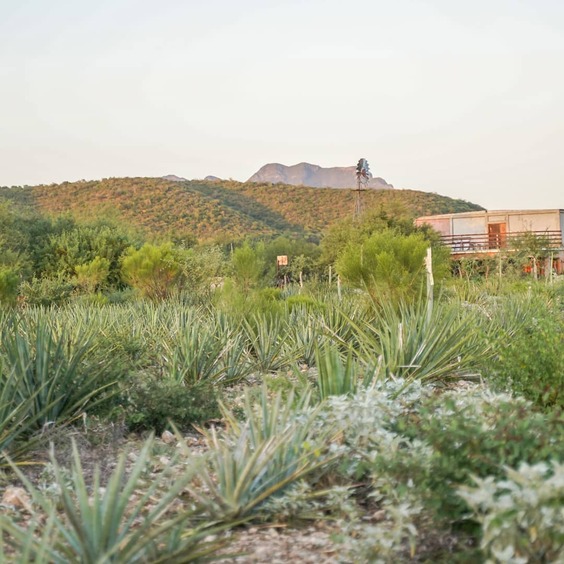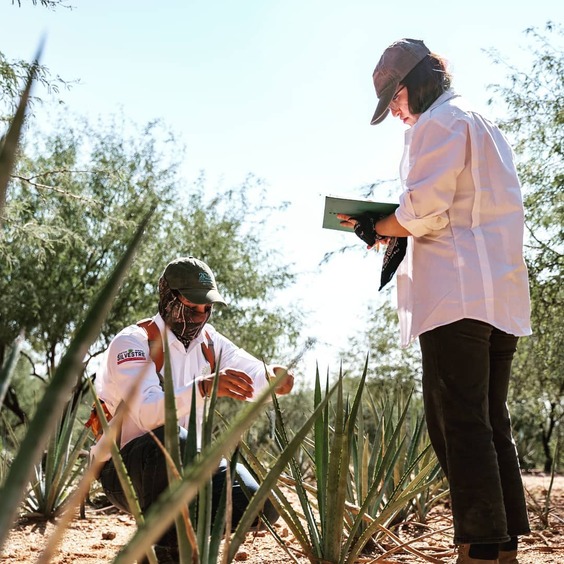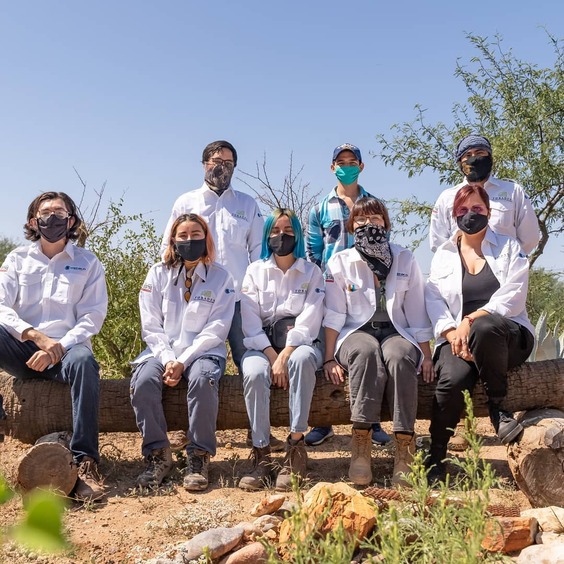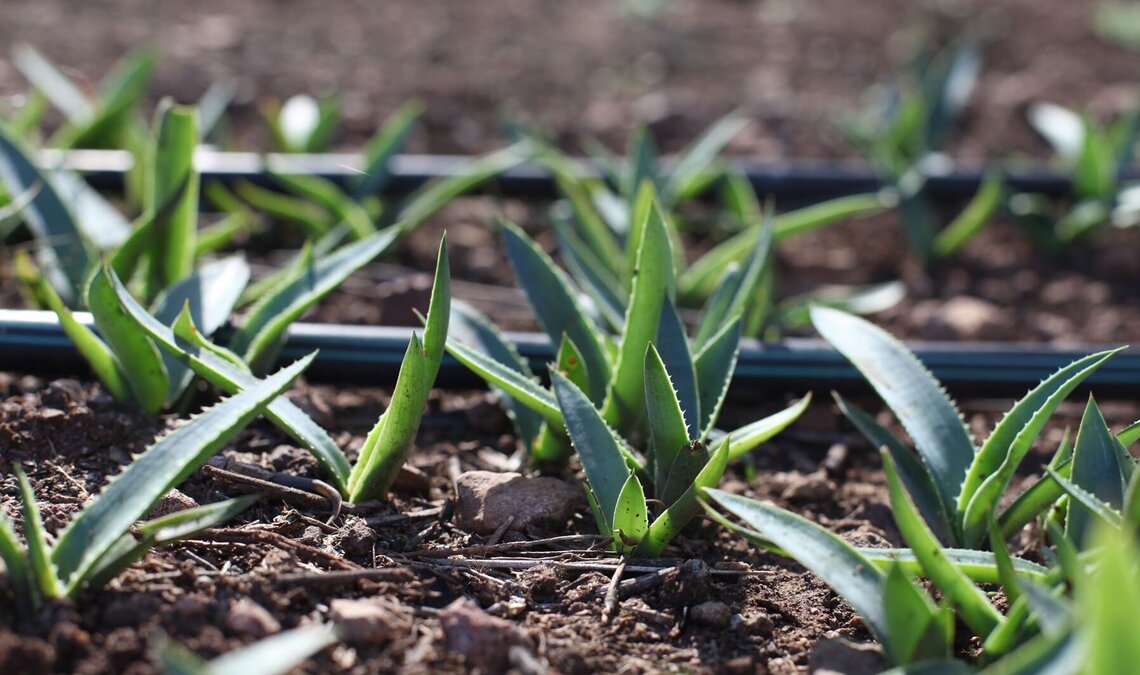By Anita Francesca Claverie Cantú, Native Plant Program Manager, Borderlands Restoration Network
Borderlands Restoration Network (BRN) has been named the winner of the first-ever Connectivity Challenge offered by the Salazar Center at Colorado State University. As the winner, BRN will receive $100,000 to implement its Bacanora for Bats: Binational Conservation and Sustainable Agave Spirits Initiative. BRN was one of five finalists from across the nation competing for the sole prize. In creating the Connectivity Challenge, the Salazar Center’s said, “our planet faces existential threats driven by human-induced climate change, species extinction, and rapid population growth, all contributing to increasing pressure on and fragmentation of rural and urban landscapes. This challenge aims to generate innovative ideas that catalyze change, ultimately leading to landscapes that connect habitats, build resilience, and improve the health of our natural systems. While one team will win the prize, the process is designed to build a community of interest and give exposure and feedback to all.”

Nectar-feeding bats rely on wild agave plants for sustenance as they migrate through the binational Arizona/Sonora borderlands, and in turn serve as their primary pollinators. Communities in Sonora have always relied on agave plants for spirits, food, and fiber. Agaves only flower once in their lifetime. In order to capture the sugars agaves store in their bases for their single flowering event, producers must harvest the agaves before they flower and produce seeds. Agaves in the region are disappearing due to development and increased production of the regional agave distillate, bacanora. As land is cleared for cultivation of bacanora and wild agaves are harvested to supplement the cultivated crops for distillation, a gap is formed, breaking connectivity in the nectar landscape for important pollinators, including threatened migratory, nectar-feeding bat species the Lesser long-nosed (Leptonycteris yerbabuenae) and Mexican long-tongued (Choeronycteris mexicana) bats.

Alongside BRN’s existing efforts during 2020 and 2021 with Bat Conservation International to grow out and plant 1,750 Agave palmeri from seeds, BRN will now address threats to agaves due to bacanora production through creation and implementation of a sustainability certification. It’s a win, win, win for agaves, bats, and bacanora producers.
Together with Sonoran partner the nonprofit Colectivo Sonora Silvestre located in Hermosillo, the team was asked by the Consejo Sonorense Regulador del Bacanora (Sonoran Bacanora Regulatory Agency) to develop and implement the certification program. This project will collaborate with ranchers producing bacanora, consumers, regulators, and scientists, to implement a sustainability certification changing how bacanora is produced, address impacts on bats and local communities, while providing a model for sustainability regulation which can be adjusted and implemented in other regions of agave spirit production. The $100,000 will be spent over two years finishing in fall 2022. Roughly half will be spent in Mexico and half in the US on staffing for facilitating stakeholder meetings through existing partnerships with regional agave festivals in Arizona and Sonora. Through our strong partnerships we will evaluate connectivity of wild agave populations and impacts to pollinators on both sides of the border, supporting the creation of a cooperative, science-based, sustainability certification for bacanora, ushering in the next generation of leaders in conservation.

The recognition and new relationships that come from the award will help BRN advance its mission to grow a restorative economy by rebuilding healthy ecosystems, restoring habitat for plants and wildlife, and reconnecting our border communities to the land through shared learning. The prize money will help convert a great idea into a great solution for agaves, bats, bacanora producers, and consumers. The timing is perfect to have a major impact as the international bacanora industry is so young. These days border issues are too often viewed through the lens of walls, division, strife, and violence. The Bacanora for Bats project offers an alternative restorative lens that celebrates the cultural and ecological heritage of our region.

